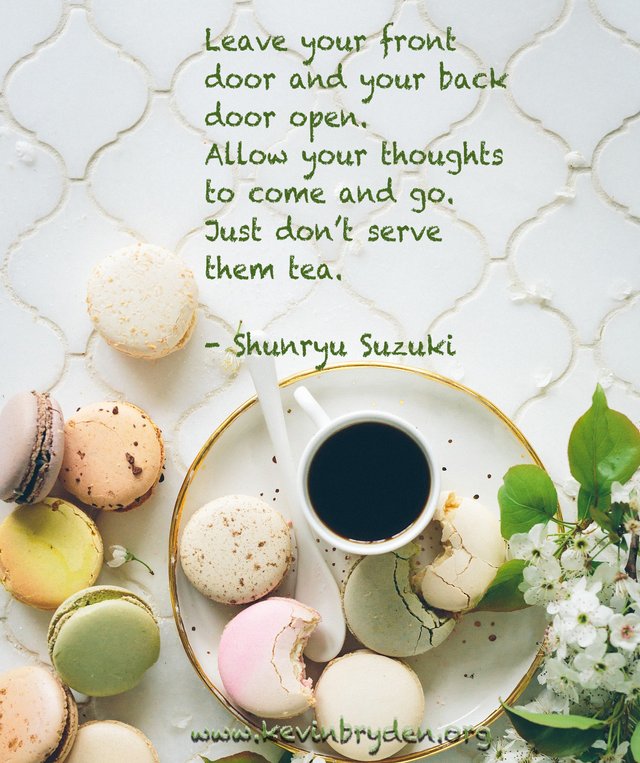Thought and thoughts and the distinction between fresh thinking and conditioned thinking?
When I first came across this understanding, talk of Thought and thoughts caused me a lot of confusion, especially as different people have different ways of looking at and talking about it.
My hope, in this post, is to shed light on the distinction between Thought and thoughts and where thoughts come from. Also to look at the two distinct types of thoughts. The reason I believe this to be important is that being open to one enables us to have the best possible experience of life and the other keeps us in a position of having the same unfulfilling experience.
The Three Principles
I like Syd Banks and the way he expressed his philosophy of life in the form of the Three Principles based understanding. He stated that thought was the missing link. The missing link which people were searching for. For those of you new to or have never heard of the Three Principles, they are the principles of Mind, of Thought and of Consciousness (I may expand on these in a future post, but I'll stay with Thought for now). There is nothing new in this approach; it's rooted in eastern philosophy, but it is a refreshingly simple way of looking at it and, for me, removes the mystique. Banks, a Scottish welder who worked in a Canadian pulp mill, had an epiphany one day when out walking with a friend. They were having a deep conversation when Banks' friend said: "You're not insecure Syd, you just think you are." From that moment Banks' life was never the same.
"Thought creates our world and then says: 'I didn't do it'" - David Boham
Thought vs thoughts
So the idea is that Thought (I use a capital T here to denote I'm referring to Thought one of the 3 Principles (3P) as per the 3P approach) is formless, it is the energy from which thoughts will eventually be made. In other words, it's the modelling clay or substance from which thoughts will be formed. So once a thought is formed or comes into the realm of form, it becomes a thing and therefore a building block of thinking.

Thoughts are random and in a constant state of flux
It may seem that there is order to the way in which we have thoughts. But we're very clever in that as humans, we are constantly looking for patterns, we're looking to create theories and attribute meaning so that we can neatly and tidily file things away, safe in the comfort and knowledge that we know what's going on and we've made sense of our world. To this end, thoughts can look ordered. And I guess that is the main purpose of thoughts, once they come into consciousness they enable us to delineate what we think we see and so create our own subjective reality.
Fresh thinking vs conditioned thinking
Fresh thoughts are those lightbulb moments. We've all had them. I think you'll agree, they can arrive at surprising times. They can wake us up at night, or arrive when we're staring into space day-dreaming. These are thoughts we haven't had before. This is when Thought makes it's way from the realm of the formless and takes form in the moment. The more lightbulb moments we have, generally, the richer experience of life we're likely to have.

Conditioned thoughts are the most common type of thoughts we use and they have multiple origins. They can come from what we think we already know. They can come from the sense we attempt to make of the world when we really didn't know what was going on. They can come from what we're taught, from what we read in papers and book and from what we see and hear. I like that idea that the thoughts we have are never really our own, whether conditioned or otherwise. Conditioned thinking doesn't yield ground-breaking ideas. I use the word conditioned because these kinds of thoughts are what leads us to conform to societal norms and allow to make the distinction between right and wrong etc.
How do we have more fresh thinking?
This is so simple, but we rarely experience it. All we have to do is become still. From the 3P perspective, stillness is our natural default state. So, just to have an intention towards stillness is enough. I find the more I allow thoughts to come and go without judging them, the more still I can become. The more I allow, the more still I become and for longer periods (this may be someting worth expanding on in a future post).
"There is nothing which will quieten the mind faster than doing nothing to quieten the mind." - Michael Neill
From that default state, we are able to hear or see those thoughts. They are always there, it's just with all of the other noise and interference we have going on, we just don't hear or see it.

"Let your mind be still, for the wisdom you seek is like that butterfly over yonder. If you try to catch it with your intellect, it will simply fly away. On the other hand, if you can still your mind, someday, when you least expect it, it will land in the palm of your hand." - Syd Banks
What does this mean in practice?
For me, it means that in all areas of my life. I am more creative; my drawing and painting take on surprising turns and there are so many 'happy accidents'. My writing too is more fluid and I feel I can express myself in a much more coherent way. My guitar playing is so much more fulfilling, effortless and expressive; it seems to happen all by itself at times. Carrying out tasks on my computer too, I have lightbulb moments which means I can achieve what I want to achieve in ways that I'd never have dreamed of in the past. My enjoyment of life continues to improve beyond recognition, I rarely get anxious or irritated these days. I'm more loving, caring and kind. Relationships just flow and issues just seem to solve themselves. I could go on, you get the message, I'm sure.
My clients are reporting similar experiences. It's funny when someone wants to work on an area of their lives and this understanding spills over into other, sometimes more important areas too.
I hope this helps you in some small or significant way,
With love and best wishes, Kevin